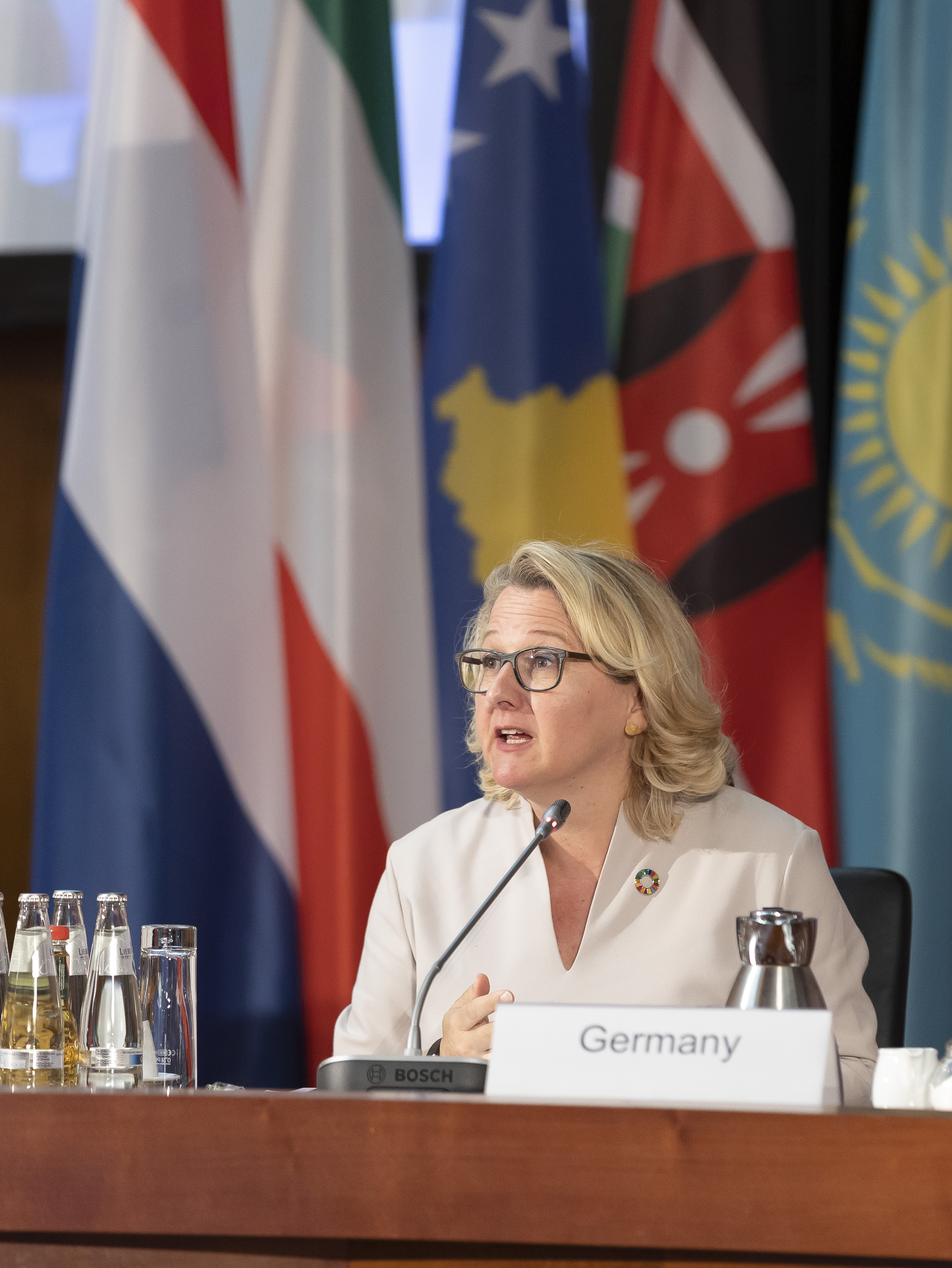24. Juni 2022 Uniting for Global Food Security
Bundesentwicklungsministerin Svenja Schulze bei der internationalen Konferenz für globale Ernährungssicherheit „Uniting for Global Food Security“ am 24. Juni 2022 in Berlin.
Es gilt das gesprochene Wort!
Ladies and gentlemen,
Excellencies,
Exactly four months ago, Russia launched its war of aggression on Ukraine, setting in motion a humanitarian disaster. Not only has the war inflicted terrible suffering and destruction on Ukraine, its devastating impact extends far beyond Ukraine’s borders.
Global food security had already been under threat. But since Russia’s war on Ukraine began, prices have shot up so much that food, fuel and fertilizer are now beyond the reach of many people across the world. This deals a crushing blow to millions of poor people in particular, who had already been struggling to feed themselves as a result of climate change and the economic impact of the COVID-19 pandemic.
In Ethiopia, Yemen, South Sudan, Somalia and Afghanistan alone, 750,000 people are currently at acute risk of starving to death. The international community has committed to end hunger by 2030. The aim is that, by that time, everyone should have sufficient, nutritious food. Yet that goal is moving further and further out of our reach.
The crisis we are seeing today stems from different roots than the food price crises of 2008 and 2011. So the response from back then falls short of what is needed today.
This time, I believe it is vital that the international community not only reacts quickly and appropriately to the current crisis but that it also works to improve food security over the long term. That means advancing agroecological innovation, regional production and trade, climate action and social security.
Germany is strongly engaged in all those aspects in its development policy and is endeavouring, in this way, to help tackle hunger and malnutrition effectively and sustainably. Sustainably transforming agri-food systems is therefore one of the four key focuses of German development policy.
As a means of taking rapid and coordinated action, I joined with World Bank President David Malpass in April to launch the Global Alliance for Food Security. The Alliance is a global solidarity platform under the auspices of the UN Global Crisis Response Group. Already, hundreds of representatives of governments, organisations and initiatives have got on board, all of them working together to offer an agile response to the current crisis. And the African Union was the first organisation to get involved. I feel that is important – it shows that it is not an Alliance about the Global South but with the Global South.
We are working towards three goals in the Alliance: We want to
- bring together and better coordinate existing structures for combating hunger,
- mobilise additional support and
- pool the knowledge available across the world so that it can be put into action.
In this way, the Alliance aims to avert the worst famine since the end of the Second World War and to make structural changes that will prevent a repeat of the suffering in future.
I would like to thank all Alliance partners for their efforts so far! And I would like to invite all those who have not yet done so to join the Global Alliance for Food Security.
Let us send the message to the world that we are taking on board our responsibility and standing in solidarity with all people and countries affected.
